第61章 CHAPTER 2 Experiments in Convalescence(4)
He read enormously. He was puzzled and depressed by "A Portrait of the Artist as a Young Man"; intensely interested by "Joan and Peter" and "The Undying Fire," and rather surprised by his discovery through a critic named Mencken of several excellent American novels: "Vandover and the Brute," "The Damnation of Theron Ware," and "Jennie Gerhardt." Mackenzie, Chesterton, Galsworthy, Bennett, had sunk in his appreciation from sagacious, life-saturated geniuses to merely diverting contemporaries.
Shaw's aloof clarity and brilliant consistency and the gloriously intoxicated efforts of H. G. Wells to fit the key of romantic symmetry into the elusive lock of truth, alone won his rapt attention.
He wanted to see Monsignor Darcy, to whom he had written when he landed, but he had not heard from him; besides he knew that a visit to Monsignor would entail the story of Rosalind, and the thought of repeating it turned him cold with horror.
In his search for cool people he remembered Mrs. Lawrence, a very intelligent, very dignified lady, a convert to the church, and a great devotee of Monsignor's.
He called her on the 'phone one day. Yes, she remembered him perfectly; no, Monsignor wasn't in town, was in Boston she thought; he'd promised to come to dinner when he returned.
Couldn't Amory take luncheon with her?
"I thought I'd better catch up, Mrs. Lawrence," he said rather ambiguously when he arrived.
"Monsignor was here just last week," said Mrs. Lawrence regretfully. "He was very anxious to see you, but he'd left your address at home."
"Did he think I'd plunged into Bolshevism?" asked Amory, interested.
"Oh, he's having a frightful time."
"Why?"
"About the Irish Republic. He thinks it lacks dignity."
"So?"
"He went to Boston when the Irish President arrived and he was greatly distressed because the receiving committee, when they rode in an automobile, would put their arms around the President."
"I don't blame him."
"Well, what impressed you more than anything while you were in the army? You look a great deal older."
"That's from another, more disastrous battle," he answered, smiling in spite of himself. "But the armylet me seewell, I discovered that physical courage depends to a great extent on the physical shape a man is in. I found that I was as brave as the next manit used to worry me before."
"What else?"
"Well, the idea that men can stand anything if they get used to it, and the fact that I got a high mark in the psychological examination."
Mrs. Lawrence laughed. Amory was finding it a great relief to be in this cool house on Riverside Drive, away from more condensed New York and the sense of people expelling great quantities of breath into a little space. Mrs. Lawrence reminded him vaguely of Beatrice, not in temperament, but in her perfect grace and dignity. The house, its furnishings, the manner in which dinner was served, were in immense contrast to what he had met in the great places on Long Island, where the servants were so obtrusive that they had positively to be bumped out of the way, or even in the houses of more conservative "Union Club" families. He wondered if this air of symmetrical restraint, this grace, which he felt was continental, was distilled through Mrs. Lawrence's New England ancestry or acquired in long residence in Italy and Spain.
Two glasses of sauterne at luncheon loosened his tongue, and he talked, with what he felt was something of his old charm, of religion and literature and the menacing phenomena of the social order. Mrs. Lawrence was ostensibly pleased with him, and her interest was especially in his mind; he wanted people to like his mind againafter a while it might be such a nice place in which to live.
"Monsignor Darcy still thinks that you're his reincarnation, that your faith will eventually clarify."
"Perhaps," he assented. "I'm rather pagan at present. It's just that religion doesn't seem to have the slightest bearing on life at my age."
When he left her house he walked down Riverside Drive with a feeling of satisfaction. It was amusing to discuss again such subjects as this young poet, Stephen Vincent Benit, or the Irish Republic. Between the rancid accusations of Edward Carson and Justice Cohalan he had completely tired of the Irish question; yet there had been a time when his own Celtic traits were pillars of his personal philosophy.
There seemed suddenly to be much left in life, if only this revival of old interests did not mean that he was backing away from it againbacking away from life itself.
RESTLESSNESS
"I'm tres old and tres bored, Tom," said Amory one day, stretching himself at ease in the comfortable window-seat. He always felt most natural in a recumbent position.
"You used to be entertaining before you started to write," he continued. "Now you save any idea that you think would do to print."
Existence had settled back to an ambitionless normality. They had decided that with economy they could still afford the apartment, which Tom, with the domesticity of an elderly cat, had grown fond of. The old English hunting prints on the wall were Tom's, and the large tapestry by courtesy, a relic of decadent days in college, and the great profusion of orphaned candlesticks and the carved Louis XV chair in which no one could sit more than a minute without acute spinal disordersTom claimed that this was because one was sitting in the lap of Montespan's wraithat any rate, it was Tom's furniture that decided them to stay.